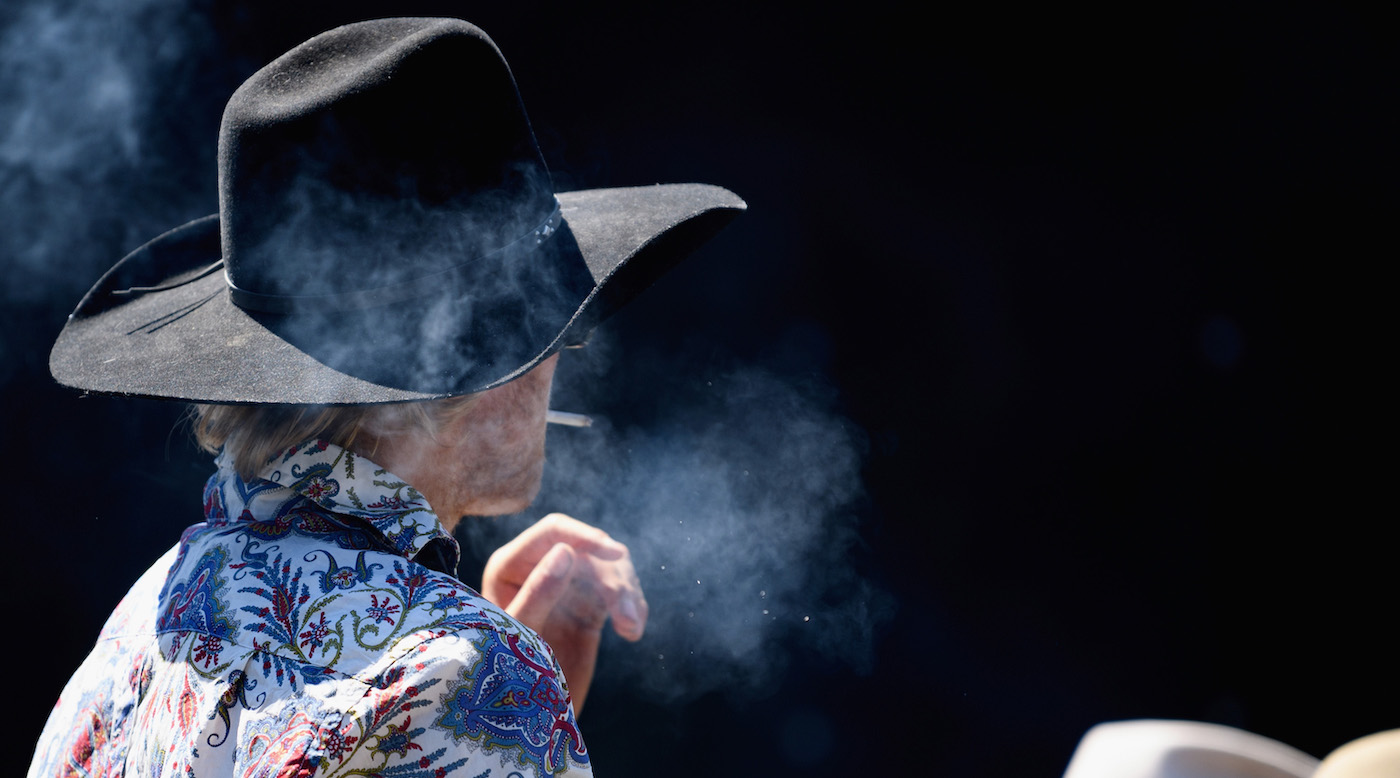Elton John: what is walking pneumonia?
Sir Elton John ended a gig in New Zealand early - but what is the medical condition he was suffering from?

A free daily email with the biggest news stories of the day – and the best features from TheWeek.com
You are now subscribed
Your newsletter sign-up was successful
Sir Elton John had to be helped off stage in Auckland last night in tears because he was too ill with “walking pneumonia” to carry on performing.
The 72-year-old singer told fans he was “disappointed, deeply upset and sorry”. The audience rose to give him a standing ovation as he left the Mount Smart Stadium stage, says Sky News. The singer later wrote to fans: “I want to thank everyone who attended tonight's gig in Auckland.
“I was diagnosed with walking pneumonia earlier today, but I was determined to give you the best show humanly possible.
The Week
Escape your echo chamber. Get the facts behind the news, plus analysis from multiple perspectives.

Sign up for The Week's Free Newsletters
From our morning news briefing to a weekly Good News Newsletter, get the best of The Week delivered directly to your inbox.
From our morning news briefing to a weekly Good News Newsletter, get the best of The Week delivered directly to your inbox.
“I played and sang my heart out, until my voice could sing no more. I'm disappointed, deeply upset and sorry. I gave it all I had.”
Elton is making a farewell world tour and has another two shows lined up in Auckland this week, which promoters have said will go ahead.
What is ‘walking pneumonia’?
The American Lung Association (ALA) calls it a “non-medical term for a mild case of pneumonia”. The symptoms are usually mild enough for sufferers to carry on their normal routines without the need for bed rest or a hospital visit, hence the term “walking”. The term is more common in the US than the UK.
A free daily email with the biggest news stories of the day – and the best features from TheWeek.com
Pneumonia is the swelling of the tissue in one or both lungs and is usually caused by a bacterial infection, says the NHS. “At the end of the breathing tubes in your lungs are clusters of tiny air sacs. If you have pneumonia, these tiny sacs become inflamed and fill up with fluid,” it explains.
What are the symptoms?
They include coughing, fever, chest pain, chills and headache, says the ALA. The NHS adds chest pain, difficulty breathing and a loss of appetite. Less common symptoms are coughing up blood, joint or muscle pain or feeling disoriented.
The NHS says to visit your doctor “if you feel unwell and you have typical symptoms of pneumonia”. It suggests urgent medical attention for “rapid breathing, chest pain or confusion”.
How can you avoid pneumonia?
Most cases of pneumonia in the UK are bacterial and are not easily passed from person to person. The NHS recommends avoiding smoking or misusing alcohol. To avoid spreading infection, it recommends covering the mouth and nose when sneezing, throwing away used tissues quickly and washing hands frequently.
Is there a pneumonia vaccine?
Yes – and, on the NHS, it will usually be offered to those in high-risk groups. As well as smokers, these include babies and very young children, elderly people, people with weakened immune systems and people with cystic fibrosis or other health conditions.
-
 Why is the Trump administration talking about ‘Western civilization’?
Why is the Trump administration talking about ‘Western civilization’?Talking Points Rubio says Europe, US bonded by religion and ancestry
-
 Quentin Deranque: a student’s death energizes the French far right
Quentin Deranque: a student’s death energizes the French far rightIN THE SPOTLIGHT Reactions to the violent killing of an ultraconservative activist offer a glimpse at the culture wars roiling France ahead of next year’s elections
-
 Secured vs. unsecured loans: how do they differ and which is better?
Secured vs. unsecured loans: how do they differ and which is better?the explainer They are distinguished by the level of risk and the inclusion of collateral
-
 New Zealand’s new smoking ban
New Zealand’s new smoking banfeature Anyone born in 2009 or later will not be able to buy cigarettes but there are concerns about a growing black market
-
 Copy Sweden’s coronavirus response, says WHO special envoy
Copy Sweden’s coronavirus response, says WHO special envoySpeed Read Expert calls for controversial Swedish response to Covid-19 to be adopted elsewhere - including New Zealand
-
 How New Zealand eliminated coronavirus
How New Zealand eliminated coronavirusSpeed Read A ‘go hard and go early’ approach and mass testing paid dividends